(This is the second of a five-part roundtable discussion of Ellen Ruppel Shell’s Cheap: The High Cost of Discount Culture. Other installments: Part One, Part Three, Part Four, and Part Five.)
Kathleen Maher writes:
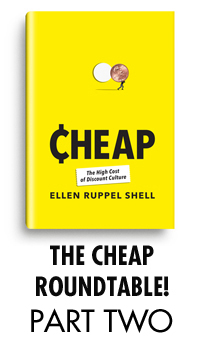 I am not quite finished reading Cheap, but I have to admit that I’m finding it more interesting than I expected, seeing that I generally don’t read non-fiction and can’t stand shopping — especially for bargains.
I am not quite finished reading Cheap, but I have to admit that I’m finding it more interesting than I expected, seeing that I generally don’t read non-fiction and can’t stand shopping — especially for bargains.
I enjoyed the quick history of American department stores and such trivia as the invention of the price tag. But it’s hard to imagine this book will capture the popular imagination in the way that other quasi-academic books have (Malcolm Gladwell, et al). The sum of all these anecdotes and quasi-scientific studies seems like a great big “Well, duh. Cheap? You get what you pay for.”
Miracle Jones hit the nail on the head with his preliminary preoccupations: First, that there is some downright weird stuff in Cheap that weakens Ruppel Shell’s argument, like the masturbation studies and the flying excrement neighborhoods. And second, as Miracle so aptly put it, I suspect most of America lives in a perpetual “Gruen transfer,” mindlessly wandering in search of the next siren call. I live in a cheap shopping district in Manhattan and I’m seeing shoppers walk by my window right now.
So I am stuck with a feeling that I know all this already. Ruppel Shell portrays our culture with a certain perspective that most of us may not have appreciated before, but it’s still the same old picture. A culture of mass consumerism in which intelligence, wisdom, quality, and beauty are devalued and degraded.
The depressing fact is that Ruppel Shell is preaching to the choir. We readers, the shrinking “elite” who take the time to actually read, know what she’s talking about. But can we possibly have any effect on the global corporations who are ramming the culture of cheapness down our throat? I doubt it very much. Global capitalism is brutal, ruthless, and backed by overwhelming military might. Ruppel Shell may be right in her assessment, but Cheap probably won’t make an impact. (Of course, the pertinent question here is: Will it sell?)
Colleen Mondor writes:
Levi: I’m curious. Does reading Ruppel Shell’s sustainability argument about IKEA change the way you perceive your shelving units? Since you are someone who is aware that you are getting a “cheap” product and you’re fine with it because it works best for your purposes, did her discussion of its larger cost come as any surprise? And does it affect how you feel about the product or company?
Edward Champion writes:
I’ll have a lot more to say in response to the many interesting points offered so far. But I wanted to reply very briefly to Levi’s remark on not seeing the problem or the ethical violation of fixing prices. I’m wondering what he (and others) think of the following episode from Jonah Lehrer’s How We Decide. The book is a tad too popular science for my tastes, but it does feature a very interesting profile of Herman Palmer, a Bronx financial counselor who helps working-class people manage their debts for a nonprofit organization. One of Palmer’s chief strategies is to cut up a debtor’s credit card and place the plastic remnants in a large jar containing other shards. Here’s the excerpt outlining the pernicious pitfall:
When Herman talks about the people who have been helped by his financial advice, his face takes on the glow of a proud parent. There’s the plumber from Co-op City who lost his job and started paying rent with his credit card. After a few months, his interest rate was above 30 percent. Herman helped him consolidate his debt and get his expenses under control. There’s that single mother who couldn’t afford daycare. “We helped her find other ways to save money,” he says. “We cut her expenses by enough so that she didn’t have to charge everything. The trick is to notice whenever you’re spending money. All that little stuff? Guess what: it adds up.” There’s the schoolteacher who racked up debt on ten different cards and paid hundreds of dollars every month in late fees alone. It took five years of careful discipline, but now the teacher is debt free. “I know the client is going to be okay when they start telling me about the sweater or CD they really wanted but they didn’t buy,” Herman says. “That’s when I know they are starting to make better decisions.”
Most of the people who come to see Herman tell the same basic story. One day, a person gets a credit card offer in the mail. (Credit card companies sent out 5.3 billion solicitations in 2007, which means the average American adult got fifteen offers.) The card seems like such a good deal. In big bold print it advertises a low introductory rate along with something about getting cash back or frequent-flier miles or free movie tickets. And so the person signs up. He fills out the one-page form and then, a few weeks later, gets a new credit card in the mail. At first, he doesn’t use it much. Then one day he forgets to get cash, and so he uses the new credit card to pay for food at the supermarket. Or maybe the refrigerator breaks, and he needs a little help buying a new one. For the first few months, he always manages to pay off the full bill. “Almost nobody gets a credit card and says, ‘I’m going to use this to buy the things I can’t afford,'” Herman says. “But it rarely stays like that for long.”
According to Herman, the big problem with credit cards — the reason he enjoys cutting them up so much — is that they cause people to make stupid financial choices. They make it harder to resist temptation, so people spend money they don’t have. “I’ve seen it happen to the most intelligent people,” Herman says. “I’ll look at their credit card bill and I’ll see a charge for fifty dollars at a department store. I’ll ask them what they bough. They’ll say, ‘It was a pair of shoes, Herman, but it was on sale.’ Or they’ll tell me that they bought another pair of jeans but the jeans were fifty percent off. It was such a good deal that it would have been dumb NOT to buy it. I always laugh when I hear that one. I then have them add up all the interest they are going to pay on those jeans or that pair of shoes. For a lot of people, it will be around twenty-five percent a month. And you know what? Then it’s not such a good deal anymore.”
These people aren’t in denial. They know that they have serious debt problems and that they’re paying a lot of interest on their debts. That’s why they’re visiting a financial adviser. And yet, they STILL bought the jeans and the pair of shoes on sale. Herman is all too familiar with the problem: “I always ask people, ‘Would you have bought the item if you had to pay cash? If you had to go to an ATM and feel the money in your hands and then hand it over?’ Most of the time, they think about it for a minute and then they say no.”
Levi Asher writes:
Colleen, I want to give this a well-thought out answer, but I’m away for a few days without the book in front of me. I want to reread those sections of the book and then respond in a few days.
Erin O’Brien writes:
We readers, the shrinking “elite” who take the time to actually read, know what she’s talking about. (Kathleen Maher)
I drink shitty beer. Does that affect my newfound “elite” status?
I live in a suburb just south of Cleveland. The Walmart I shop at is about 6 miles away. It’s adjacent to Parmatown Mall, which you can visit vicariously here.
 I only go to Walmart when I need to buy Suave shampoo, Saran wrap, Q-tips (I buy the generic ones) and two or three dozen other really irritating things. I usually put said purchases on my credit card, which I pay off monthly in order to earn the one percent rebates.
I only go to Walmart when I need to buy Suave shampoo, Saran wrap, Q-tips (I buy the generic ones) and two or three dozen other really irritating things. I usually put said purchases on my credit card, which I pay off monthly in order to earn the one percent rebates.
There used to be another Walmart about 8 miles away. It was built on a landfill. The landfill started leaking noxious gasses that were finding their way into the land of Low Prices. They had to close that Walmart.
In each of the older toilet tanks in our home, you’ll find plastic bottles filled with water and sand that displace some of water therein and lessen the volume of every flush. We put these bottles in right after we moved into this house almost 17 years ago. We conserve everything where we can, but neither my husband nor I would ever leave less than a 20 percent tip. Since we do not want our kid to have to take out a college loan, there is no AC in our house. Vacations are long weekends to places like Mammoth Cave. And if you think my beer is shitty, you should try a cup of my coffee. I drink it with a smile.
Life. Is. Beautiful.
Peggy Nelson writes:
Ed, I’m glad you brought the credit card angle up, which is totally insidious. Ruppel Shell doesn’t get into it much, perhaps because she’s so focused on discount retail. If anyone has time, I highly recommend the documentary Maxed Out. (You can watch it online via Amazon and also on Instant Play on Netflix.) [EDITOR’S NOTE: With great respect to the lovely Ms. Nelson, I’m afraid I must note the discount culture irony. The film is also available on DVD, but at a higher price. Do the filmmakers get more of a cut through the DVD or the cheaper on-demand option?]
 Credit card companies target the poorest, and least credit-savvy, segments of the population to make their money. They do not make money on you if you use the card responsibly and pay in full every month, or if you hold it in reserve only as an emergency fund. They do make money off you if you run it up to the limit and then only pay the minimum, or, better yet, miss payments and run up fees and penalties.
Credit card companies target the poorest, and least credit-savvy, segments of the population to make their money. They do not make money on you if you use the card responsibly and pay in full every month, or if you hold it in reserve only as an emergency fund. They do make money off you if you run it up to the limit and then only pay the minimum, or, better yet, miss payments and run up fees and penalties.
Providian anyone? Capital One? MBNA, who is one of the top contributors to the Republican Party? These predatory lenders have a business model that’s just like the check cashing places out by the strip mall. Once you’re in their system, you will pay and pay and pay. Elizabeth Warren, the Harvard bankruptcy lawyer interviewed in Ruppel Shell’s book, plays a large role in Maxed Out too, explaining how this works. It is counterintuitive. How can they make money off the little people who have almost none? And yet, they do. Lots of it.
This all plays into something in us that is very difficult to resist. And I’ve been there, as have some of you. Hey, a little extra for free! Just for now. This will so help me out, get me over the hump, and I need some stuff. Yeah, I have to pay it back, but only eventually. And I can do so in little bits. Meanwhile, the total climbs higher and higher. Until things are worse than at the beginning. And now you don’t need a little help. You need a lot. And they’ve started calling your family. And your boss.
There is one more insidious thing about credit cards (well probably more than one) — you need one for your social reputation. I don’t mean that as some abstract thing. You need one to rent a car, to buy an airline ticket, to stay in a motel, to rent an apartment (in some places), and, in some places, even to get a job. You need one as a second ID, the “real” ID, that validates your active membership in society. Without a credit card, you have no reputation (or worse, a bad one). You cannot do things. You are suspect.
Kathleen Maher writes:
Erin, so maybe you’re not elite — it’s my problem. The truth is, I’m so elitist that I don’t even like fireworks. Even as a child, they impressed me as bombs bursting in air–more martial than anything else. We’re free to accept or reject superficial labels like “down to earth” vs. “elitist.” I certainly didn’t mean to insult anyone.
I did think, however, that this book — which so carefully describes the lengths that shoppers will go (the outlet malls, for one) to score a designer label or a brand name — was referring to the “elitist” that runs rampant in so many psyches. Or maybe not. I don’t shop at outlet malls. It’s not worth the time and trouble. And here again, I can be called an elitist for not joining the outlet crowd.
To me, elitism is not a soul-sickness. It’s not a vice. It’s more a matter of not being able to get with the big group. Not belonging; not joining. I know there’s the connotation that real elitists think they’re better. I do not think I’m better. I do think I’m different. And admitting that sets me up for criticism, as if by different I mean special. I don’t necessarily mean special. Just different.
Erin O’Brien writes:
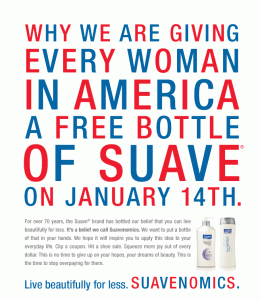 Kudos to Peggy’s “great unasked question” and the subsequent points she raises. Life Inc. sounds like a book I need to visit. But I need to bellyache about the government for a bit anyway. As Ruppel Shell copiously notes in her book, many of us are hard-wired to find a good value or a good price. To that end, I shop at a discount grocer and Walmart. But I also ride pretty far left of center for a reason. I just don’t think that enough people will shop responsibly or self-regulate to make a difference. I try to be conscientious and I try to conserve. Many others do. But it is simply not enough. This is why we need government. I want legislation that supports fair minimum wage. If the best price around is a few cents more in order to pay that wage, I have no problem shelling out $1.25 for my Suave shampoo instead of $0.99. Furthermore, I’m happy to pay taxes that support Medicaid and food assistance. I’d love to see Medicare gradually expanded to relieve the private sector of the choking health care/health insurance behemoth. I’m all for college becoming part of the public school system. I’m for a government that supports effective regulation and inspection of imported food and goods. The list goes on and on. Yes, I know all this means more taxes. I’m okay with that. I am happy to have a little less in order to live in a society that respects and values human dignity. Sorry about the flag-waving, but somewhere along the way, taxation became a dirty word and unfettered capitalism/consumerism became the new golden idol. Call it the bastard child of Ronald Reagan’s trickle-down economics coupling with eight years of Bush’s crazed deregulation.
Kudos to Peggy’s “great unasked question” and the subsequent points she raises. Life Inc. sounds like a book I need to visit. But I need to bellyache about the government for a bit anyway. As Ruppel Shell copiously notes in her book, many of us are hard-wired to find a good value or a good price. To that end, I shop at a discount grocer and Walmart. But I also ride pretty far left of center for a reason. I just don’t think that enough people will shop responsibly or self-regulate to make a difference. I try to be conscientious and I try to conserve. Many others do. But it is simply not enough. This is why we need government. I want legislation that supports fair minimum wage. If the best price around is a few cents more in order to pay that wage, I have no problem shelling out $1.25 for my Suave shampoo instead of $0.99. Furthermore, I’m happy to pay taxes that support Medicaid and food assistance. I’d love to see Medicare gradually expanded to relieve the private sector of the choking health care/health insurance behemoth. I’m all for college becoming part of the public school system. I’m for a government that supports effective regulation and inspection of imported food and goods. The list goes on and on. Yes, I know all this means more taxes. I’m okay with that. I am happy to have a little less in order to live in a society that respects and values human dignity. Sorry about the flag-waving, but somewhere along the way, taxation became a dirty word and unfettered capitalism/consumerism became the new golden idol. Call it the bastard child of Ronald Reagan’s trickle-down economics coupling with eight years of Bush’s crazed deregulation.
I am not naive. I know the lobbyists, the big corporations, and the big money are all staggering entities. There’s also plenty of regular red-blooded Americans who would decry every assertion in my previous paragraph. They usually vote Republican. All I can hope for is that the blue push which we saw in the last two elections starts the juggernaut moving slowly but surely leftward.
A few more notes:
I thought Ruppel Shell’s recounting of discount retailing history was interesting, but that she devoted too much space to it.
Sarah: Point well taken about publishers wanting books such as Cheap to be personalized. Unfortunately for me, Ruppel Shell’s brand of personalization did not necessarily warm this subject matter. For instance, when she references people “wearing T-shirts emblazoned with slogans” on page 97, the tone felt condescending. That’s purely subjective on my part, but there it is.
Regarding the notes, I did find them valuable, but also distracting. I always knew they were lurking back there. Whenever I came upon something that intrigued me (the liquified manure for instance), I had to decide whether or not to interrupt my read and see if there was more to be had in the back of the book. When there was worthy content, I had to wonder why Ruppel Shell didn’t just incorporate it in the general text. The notes also struck me as just one more reason that we should be reading ebooks. We all seem to be able to handle embedded links online. Books like Cheap beg for the convenience of a click and a shift of the eyes instead of the intrusive page fumbling begged by the elaborate notes. But all that said, 232 pages of text followed by 63 pages of acknowledgments, notes and bibliography was stunning to me. Of course, had this been an eBook, I wouldn’t have been comparing the thickness of pages devoted to text to the thickness of pages devoted to explaining said text, now would I?
Colleen Mondor writes:
Honestly, while we could pick out certain points we wish were expanded upon or not, I think the purpose of the book was to make the general reader think before they buy. We haven’t talked much about the social history Ruppel Shell presents here on department stores and malls. This was all very interesting — especially how outlet malls in particular are designed to keep people moving and to a certain degree uncomfortable (no covered walkways, etc.). I also thought that her passages on pricing and the example of the mattresses was very well done — we don’t want an inexpensive mattress; we want an expensive mattress that is priced inexpensively (even though the prices are all, to some degree, made up).
One thing I was worried about was that this would be a big Walmart bashing book. But it’s not. I appreciated that Ruppel Shell even framed Whole Foods in a less than flattering light. It’s not as if people need to aspire to go there for the good stuff. Ruppel Shell makes a point that the expensive stores are just as culpable as the dollar stores in manipulating the public.
 To me, that was rather key in the book. It also addresses this “elitism” issue. (That is a word that I think will be a lightning rod for some time due to the election.) Ruppel Shell’s point seems to be that the bargain idea crosses socioeconomic lines. While a bargain for some folks might seem crazy expensive to some (the Whole Foods example), it is still another person’s bargain. But then, as she explains in various ways, the bargains are revealed not to be bargains at all — either in their value to you (they won’t last long or flat out aren’t worth it) or in the true cost to others (or the environment, etc.). Levi is right that, for some items and some people, a cheap price for a short-term purchase may be worthwhile. But as Ruppel Shell shows, there is still the fact that the true price isn’t being exposed to the American consumer. It’s like how some of us are enjoying cheap energy while West Virginia and Kentucky pay with environmental destruction, health problems, etc.
To me, that was rather key in the book. It also addresses this “elitism” issue. (That is a word that I think will be a lightning rod for some time due to the election.) Ruppel Shell’s point seems to be that the bargain idea crosses socioeconomic lines. While a bargain for some folks might seem crazy expensive to some (the Whole Foods example), it is still another person’s bargain. But then, as she explains in various ways, the bargains are revealed not to be bargains at all — either in their value to you (they won’t last long or flat out aren’t worth it) or in the true cost to others (or the environment, etc.). Levi is right that, for some items and some people, a cheap price for a short-term purchase may be worthwhile. But as Ruppel Shell shows, there is still the fact that the true price isn’t being exposed to the American consumer. It’s like how some of us are enjoying cheap energy while West Virginia and Kentucky pay with environmental destruction, health problems, etc.
I think Ruppel Shell did a very good job of writing a thinking person’s book that will appeal to anyone who shops — in essence, to pretty much anyone. You could argue that folks who have to buy cheap because they don’t have much money wouldn’t bother reading this book. But I don’t think that’s true. As I stated earlier, that’s the life I was brought up in. And I know that both my parents would be very interested in this book. No one likes to be manipulated. And at its heart, this is what Ruppel Shell is exposing.
I thought the endnotes were excellent also. But as a historian, that’s something I look for in a book like this one.
Robert Birnbaum writes:
Here’s the OED (that’s the Oxford English Dictionary for you non elitists)
elite noun & adjective. Also élite. L18.
[ORIGIN French élite, use as noun of fem. of obsolete pa. pple of élire, †eslire from Proto-Romance var. of Latin eligere elect verb.]
► A noun.
1 The choice part, the best, (of society, a group of people, etc.); a select group or class. L18.
K. M. E. Murray Oxford still catered…for the social elite, who could afford to go to the University as a…luxury. R. Rendell She…spoke of her family and its immediate circle as of an élite.
social elite: see social adjective.
► B attrib. adjective. Of or belonging to an elite; exclusive. M19.
elitism noun advocacy of or reliance on the leadership or dominance of a select group elitist adjective & noun (a person) practising elitism
Here’s American Heritage:
e·lite or é·lite
n. pl. elite or e·lites
A group or class of persons or a member of such a group or class, enjoying superior intellectual, social, or economic status: “In addition to notions of social equality there was much emphasis on the role of elites and of heroes within them” (Times Literary Supplement).
The best or most skilled members of a group: the football team’s elite.
e·lit·ism or é·lit·ism
n.
The belief that certain persons or members of certain classes or groups deserve favored treatment by virtue of their perceived superiority, as in intellect, social status, or financial resources.
The sense of entitlement enjoyed by such a group or class.
Control, rule, or domination by such a group or class
I am pretty certain that I am an elitist — and people, I think that all of you are too.
This pow wow, as such things are inevitably driven to, has devolved into a cross-hatching of confusions and personal defenses. That’s all understandable, as examining human behavior reveals all manner of anomalies, illogics, and base behavior; none of which we are comfortable admitting are parts of our own persona (in the spirit of [sort-of- ]full disclosure, I own more socks, baseball caps and hoodies than anyone should).
Bad boy Eddie introduced the subject of our behavior around credit (cards). That’s a whole other ball of wax— and whatever irrationalities are manifest you can bet that the shylocks and the money changers have worked out an elaborate rigging of the system so that we (you and me) can’t win. Remember: The House never loses.
Levi talked about the practicality of IKEA. Which makes sense. Except you can, for example, do bookshelves for less (cement blocks and lumber and unfinished pine shelves). May be that’s too much work. Personally I think IKEA and such outlets contribute to a stultifyingly dull sense of habitat.
 To me, the big unaddressed issue is how we perceive value. Price is not about value. And I don’t think it ever really has been. What determines the price of a Hermes scarf, a Brioni suit, and Jimmy Choo shoes? Workmanship? Quality materials? Or the campaign that convinces some people that $5,000 or $6,000 is okay? Or that $25 or more is the price of a good cigar? (By the way, with workers, farmers at the bottom of the pyramid of production of luxury goods don’t fare better than the those making whatever products end up in Walmart, which, by the way, is no great bargain past a select number of items that are promoted.) And apropos of nothing, Whole Foods is vastly overpriced and oddly managed. (Did you read about the Whole Foods worker who was fired for planning to eat a tuna fish sandwich? Then Whole Foods tried to impede his collection of unemployment comp.) But Whole Foods is apparently well branded. I work part time at a Trader Joe’s and I can declaim on this subject at length if prodded.
To me, the big unaddressed issue is how we perceive value. Price is not about value. And I don’t think it ever really has been. What determines the price of a Hermes scarf, a Brioni suit, and Jimmy Choo shoes? Workmanship? Quality materials? Or the campaign that convinces some people that $5,000 or $6,000 is okay? Or that $25 or more is the price of a good cigar? (By the way, with workers, farmers at the bottom of the pyramid of production of luxury goods don’t fare better than the those making whatever products end up in Walmart, which, by the way, is no great bargain past a select number of items that are promoted.) And apropos of nothing, Whole Foods is vastly overpriced and oddly managed. (Did you read about the Whole Foods worker who was fired for planning to eat a tuna fish sandwich? Then Whole Foods tried to impede his collection of unemployment comp.) But Whole Foods is apparently well branded. I work part time at a Trader Joe’s and I can declaim on this subject at length if prodded.
Anyway, there will not be a revolution — certainly not by consumers. (By the way, Cheap is part of a long line of books about (us) dumb and benighted consumers going back to Vance Packard’s Nation of Sheep in the early ’60s.) Nope, the correction that will dismantle the mass market will be the slippery downward slope of peak oil and the reconstitution of society circumstantially deprived of energy to sustain the oil-based industries and products. Which is to say that James Howard Kuntsler (The Long Emergency) has me convinced.
For those of you who believe that reading these types of book make us smarter consumers, well, good luck.
P.S. One thing that continues to bother me is the rapid decline in the price of books (clearly an example of the disparity of price and value). Go to Amazon and see what some recently published books are being offered at. And remainders! There’s a surefire way for the book publishers to commit suicide.
Nina MacLaughlin writes:
Janet Maslin has some dismissive things to say about Cheap in the New York Times, where she pairs it with Chris Anderson’s Free: The Future of a Radical Price. “Neither author is entirely to be trusted,” Maslin writes. “And neither author has written a book that is as sharp as its one-word catchy title.”
I wonder about Robert’s most recent point about whether these sorts of books can actually be effective tools of change, and whether these books can serve in making us “smarter consumers.” I think I may tilt more towards Robert’s pessimistic take. Being more aware is one thing. We know now that we should care whether our apples were flown all the way from Argentina, and we know that it’s not a good thing to pay $4 for a T-shirt if it means that 11 year-old kids were involved in making it. But being able to care about the backstory of a product — the circumstances it was made, how far it had to travel to arrive on the shop’s shelf, &c — and being able to make choices based on those facts are two completely different things.
But this feels like a pretty obvious point, and so did many of Ruppel Shell’s examples. Some of her examples were mildly illuminating (the shrimp discussion, for example, if only for its gross-out factor). But as Janet Maslin points out in her response to the book, Ruppel Shell boasts that she decides to opt for chicken over shrimp at a Red Lobster dinner. As Maslin writes, “Yet cheap chicken-farming isn’t any less ghastly. It just doesn’t happen to be addressed by this book.” It’s all about picking your battles, I guess.
I have been thinking a lot about what Levi has said about IKEA and disposable shelves. It makes some sense, and, not to overstate the case, perhaps it helps in making us less attached to actual things (even if they do have cute Swedish monikers). For me, though, as someone who loathes shopping to an extreme, I think I’d rather pay a little more for the shelves, if only to avoid having to go back to IKEA to buy replacements.
Kathleen Maher writes:
I’ve finished reading the book, and I enjoyed reading the history of buying and selling stuff in this country and just how we got to the grotesque place we are today. Many of Ruppel Shell’s investigations into cognitive psychology either confirmed my intuitions or struck me as obvious. For example, I am already acutely aware that the “Winner Takes Nothing.” I know about deforestation, the pitiful working conditions, and these policies the world over. I’ve tasted that muddy, medicine-tinged shrimp. And while I may have been naive about that one word, I know full well that nobody around here is a “worker.” They’re associates and representatives with whom I’ve shared three-hour there and three-hour back bus rides. Except they get off the bus at the Woodbury Mall while I continue to the next stop to visit a friend who rents a bungalow outside Monroe, NY during the summer.
In the evening, the same passengers join me on the bus returning to the city. They’re now weighed down with glossy Dolce and Gabba shopping bags, along with (and there’s no real way not to notice) Coach, Tommy Hilfiger, and Versace shopping bags. And aside from whatever name brand clothing and leather goods these people may have bought, they’ll carry those high-end, name brand shopping bags around on the subway until it’s time for their next day trip to the designer outlet mall.
Overall, this book made me as anxious and as unhappy as shopping does. Count me an extreme case of HNFC: If I happen to hit upon a “bargain,” I do not enjoy it. I do not feel richer and frankly it would amaze me if the pleasure paths in my brain lit up. For I am all too aware that my personal bargain means another person’s loss. Yet I’m no happier knowing I’ve lost money in an institutionalized swindle.
When I’m feeling tougher, I don’t have time to figure gains and losses in percentages of pennies. As I’m more apt to see it, I indulge myself in that luxury — without counting pennies. For if I were truly poverty-stricken, I would need to empty trash bins, as people are doing right now outside the Dunkin Donuts across the street. My shopping cart would be the one I’d somehow procured in order to spend my days and nights accumulating recyclable waste and other junk. Scrounging for “bargains” feels like the high-end version of that activity. And as Ruppel Shell says, it’s work.
The extinction of craft and creativity for the sake of “smarts, drive, ambition, and speed” depresses me. A world without appreciation for craft, skill, and patience is not a happy one for me. Give me fiction and I’ll get out of here.
P.S. Nina’s remark about “cheap chicken” awoke a horrifying description I once read about how corporations breed poultry so that their beaks are barely existent. The birds’ throats are then wired open and liquefied feed, antibiotics, and hormones are poured into them, propelling the already genetically engineered birds to grow up faster and fatter in dirtier quarters.

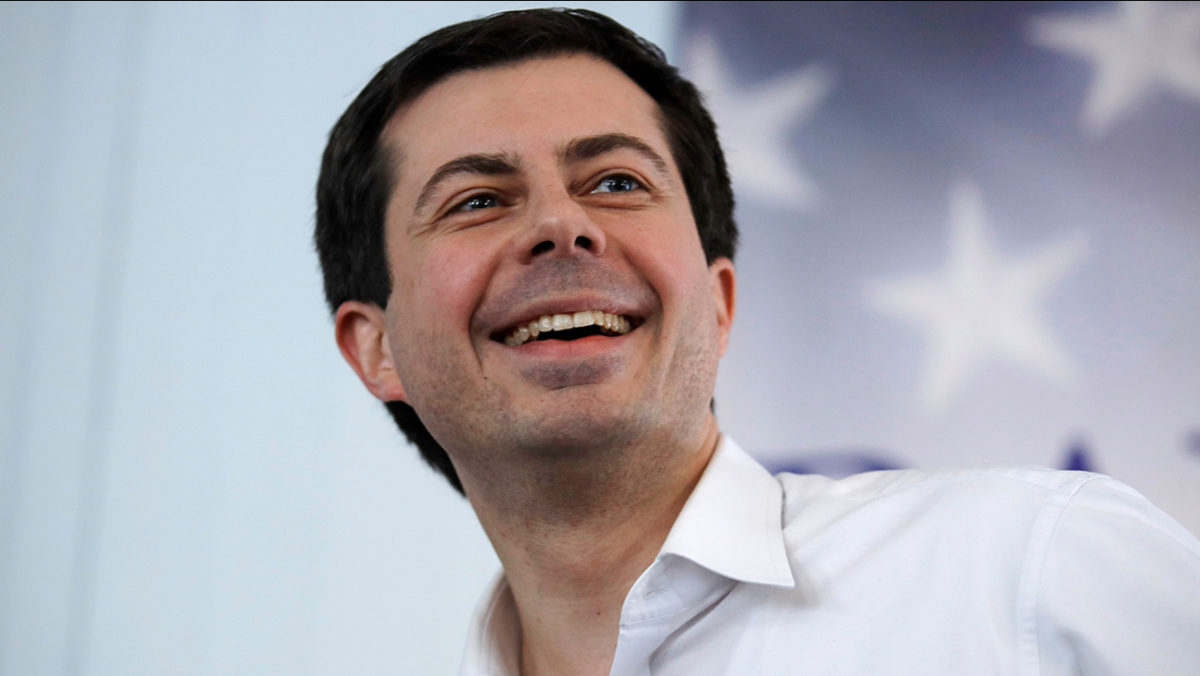
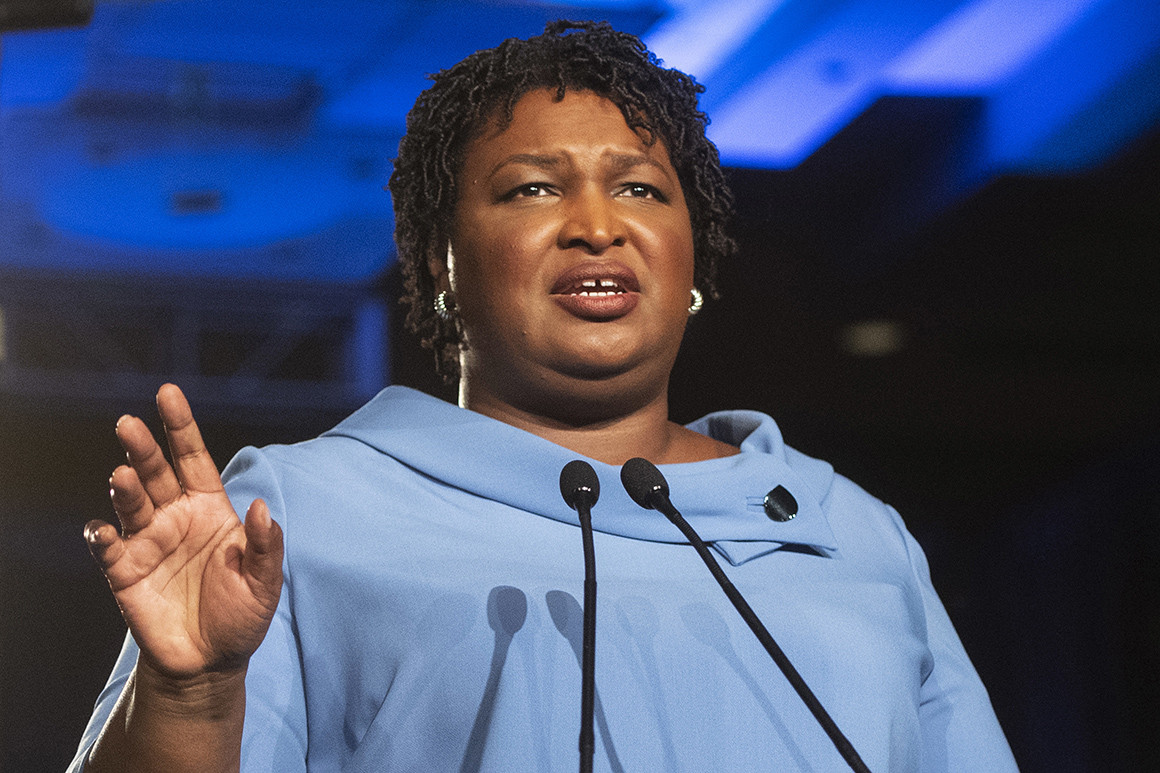
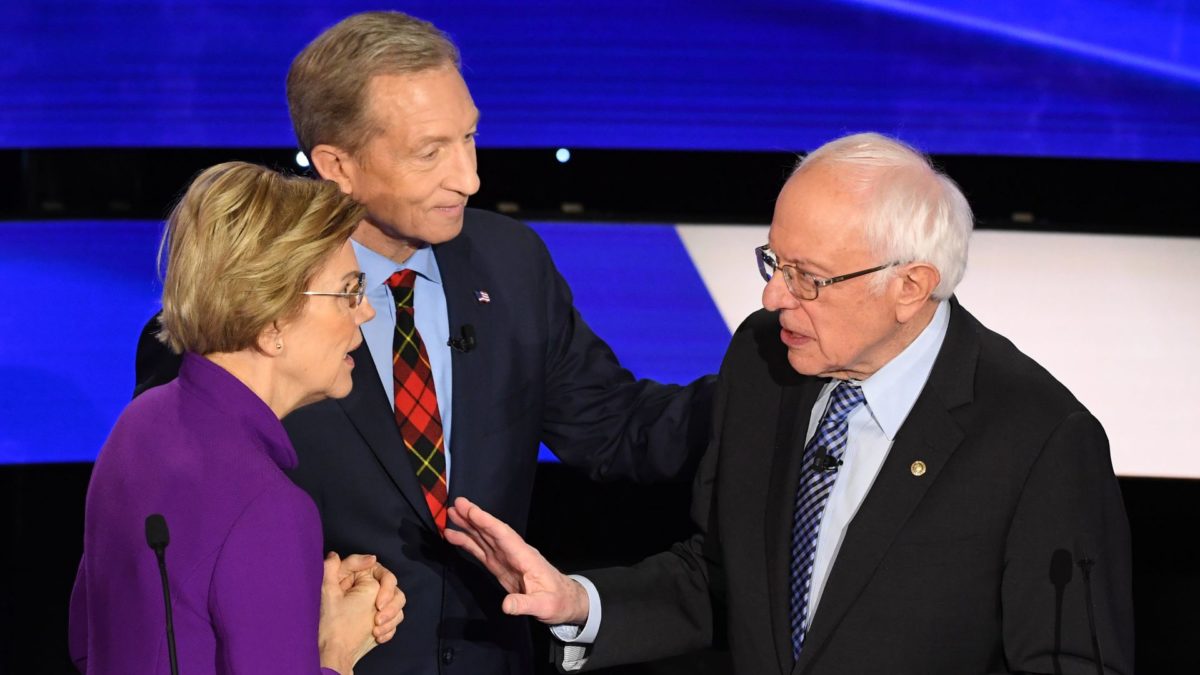
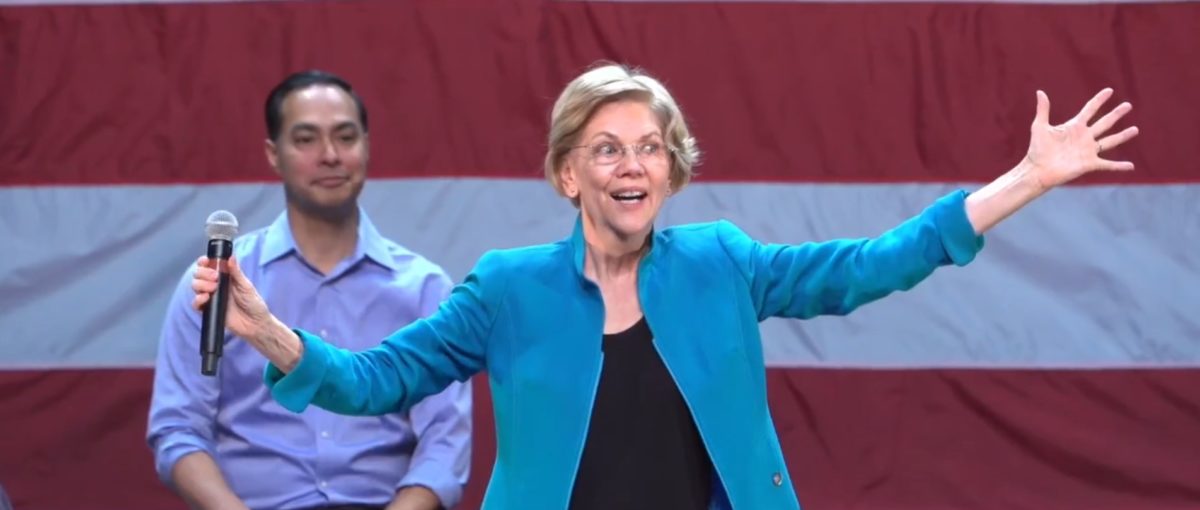


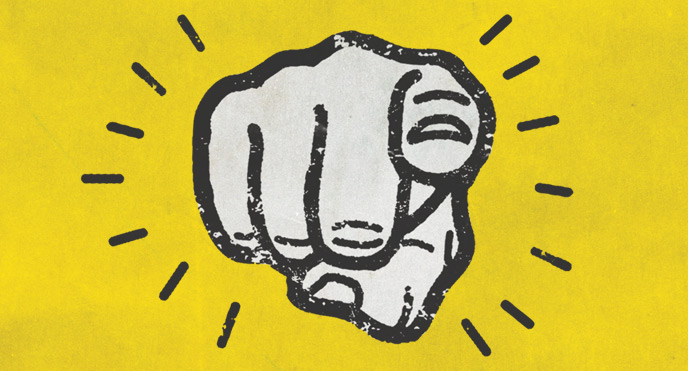




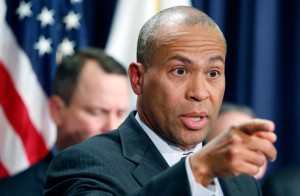

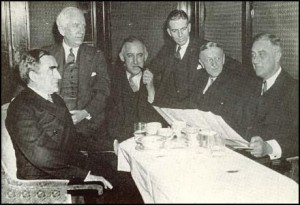
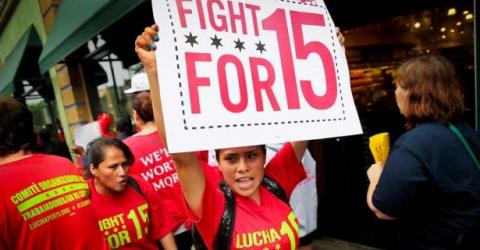

 I only go to Walmart when I need to buy Suave shampoo, Saran wrap, Q-tips (I buy the generic ones) and two or three dozen other really irritating things. I usually put said purchases on my credit card, which I pay off monthly in order to earn the one percent rebates.
I only go to Walmart when I need to buy Suave shampoo, Saran wrap, Q-tips (I buy the generic ones) and two or three dozen other really irritating things. I usually put said purchases on my credit card, which I pay off monthly in order to earn the one percent rebates.  Credit card companies target the poorest, and least credit-savvy, segments of the population to make their money. They do not make money on you if you use the card responsibly and pay in full every month, or if you hold it in reserve only as an emergency fund. They do make money off you if you run it up to the limit and then only pay the minimum, or, better yet, miss payments and run up fees and penalties.
Credit card companies target the poorest, and least credit-savvy, segments of the population to make their money. They do not make money on you if you use the card responsibly and pay in full every month, or if you hold it in reserve only as an emergency fund. They do make money off you if you run it up to the limit and then only pay the minimum, or, better yet, miss payments and run up fees and penalties.  Kudos to Peggy’s “great unasked question” and the subsequent points she raises. Life Inc. sounds like a book I need to visit. But I need to bellyache about the government for a bit anyway. As Ruppel Shell copiously notes in her book, many of us are hard-wired to find a good value or a good price. To that end, I shop at a discount grocer and Walmart. But I also ride pretty far left of center for a reason. I just don’t think that enough people will shop responsibly or self-regulate to make a difference. I try to be conscientious and I try to conserve. Many others do. But it is simply not enough. This is why we need government. I want legislation that supports fair minimum wage. If the best price around is a few cents more in order to pay that wage, I have no problem shelling out $1.25 for my Suave shampoo instead of $0.99. Furthermore, I’m happy to pay taxes that support Medicaid and food assistance. I’d love to see Medicare gradually expanded to relieve the private sector of the choking health care/health insurance behemoth. I’m all for college becoming part of the public school system. I’m for a government that supports effective regulation and inspection of imported food and goods. The list goes on and on. Yes, I know all this means more taxes. I’m okay with that. I am happy to have a little less in order to live in a society that respects and values human dignity. Sorry about the flag-waving, but somewhere along the way, taxation became a dirty word and unfettered capitalism/consumerism became the new golden idol. Call it the bastard child of Ronald Reagan’s trickle-down economics coupling with eight years of Bush’s crazed deregulation.
Kudos to Peggy’s “great unasked question” and the subsequent points she raises. Life Inc. sounds like a book I need to visit. But I need to bellyache about the government for a bit anyway. As Ruppel Shell copiously notes in her book, many of us are hard-wired to find a good value or a good price. To that end, I shop at a discount grocer and Walmart. But I also ride pretty far left of center for a reason. I just don’t think that enough people will shop responsibly or self-regulate to make a difference. I try to be conscientious and I try to conserve. Many others do. But it is simply not enough. This is why we need government. I want legislation that supports fair minimum wage. If the best price around is a few cents more in order to pay that wage, I have no problem shelling out $1.25 for my Suave shampoo instead of $0.99. Furthermore, I’m happy to pay taxes that support Medicaid and food assistance. I’d love to see Medicare gradually expanded to relieve the private sector of the choking health care/health insurance behemoth. I’m all for college becoming part of the public school system. I’m for a government that supports effective regulation and inspection of imported food and goods. The list goes on and on. Yes, I know all this means more taxes. I’m okay with that. I am happy to have a little less in order to live in a society that respects and values human dignity. Sorry about the flag-waving, but somewhere along the way, taxation became a dirty word and unfettered capitalism/consumerism became the new golden idol. Call it the bastard child of Ronald Reagan’s trickle-down economics coupling with eight years of Bush’s crazed deregulation.  To me, that was rather key in the book. It also addresses this “elitism” issue. (That is a word that I think will be a lightning rod for some time due to the election.) Ruppel Shell’s point seems to be that the bargain idea crosses socioeconomic lines. While a bargain for some folks might seem crazy expensive to some (the Whole Foods example), it is still another person’s bargain. But then, as she explains in various ways, the bargains are revealed not to be bargains at all — either in their value to you (they won’t last long or flat out aren’t worth it) or in the true cost to others (or the environment, etc.). Levi is right that, for some items and some people, a cheap price for a short-term purchase may be worthwhile. But as Ruppel Shell shows, there is still the fact that the true price isn’t being exposed to the American consumer. It’s like how some of us are enjoying cheap energy while West Virginia and Kentucky pay with environmental destruction, health problems, etc.
To me, that was rather key in the book. It also addresses this “elitism” issue. (That is a word that I think will be a lightning rod for some time due to the election.) Ruppel Shell’s point seems to be that the bargain idea crosses socioeconomic lines. While a bargain for some folks might seem crazy expensive to some (the Whole Foods example), it is still another person’s bargain. But then, as she explains in various ways, the bargains are revealed not to be bargains at all — either in their value to you (they won’t last long or flat out aren’t worth it) or in the true cost to others (or the environment, etc.). Levi is right that, for some items and some people, a cheap price for a short-term purchase may be worthwhile. But as Ruppel Shell shows, there is still the fact that the true price isn’t being exposed to the American consumer. It’s like how some of us are enjoying cheap energy while West Virginia and Kentucky pay with environmental destruction, health problems, etc. To me, the big unaddressed issue is how we perceive value. Price is not about value. And I don’t think it ever really has been. What determines the price of a Hermes scarf, a Brioni suit, and Jimmy Choo shoes? Workmanship? Quality materials? Or the campaign that convinces some people that $5,000 or $6,000 is okay? Or that $25 or more is the price of a good cigar? (By the way, with workers, farmers at the bottom of the pyramid of production of luxury goods don’t fare better than the those making whatever products end up in Walmart, which, by the way, is no great bargain past a select number of items that are promoted.) And apropos of nothing, Whole Foods is vastly overpriced and oddly managed. (Did you read about the Whole Foods worker who was fired for planning to eat a tuna fish sandwich? Then Whole Foods tried to impede his collection of unemployment comp.) But Whole Foods is apparently well branded. I work part time at a Trader Joe’s and I can declaim on this subject at length if prodded.
To me, the big unaddressed issue is how we perceive value. Price is not about value. And I don’t think it ever really has been. What determines the price of a Hermes scarf, a Brioni suit, and Jimmy Choo shoes? Workmanship? Quality materials? Or the campaign that convinces some people that $5,000 or $6,000 is okay? Or that $25 or more is the price of a good cigar? (By the way, with workers, farmers at the bottom of the pyramid of production of luxury goods don’t fare better than the those making whatever products end up in Walmart, which, by the way, is no great bargain past a select number of items that are promoted.) And apropos of nothing, Whole Foods is vastly overpriced and oddly managed. (Did you read about the Whole Foods worker who was fired for planning to eat a tuna fish sandwich? Then Whole Foods tried to impede his collection of unemployment comp.) But Whole Foods is apparently well branded. I work part time at a Trader Joe’s and I can declaim on this subject at length if prodded.